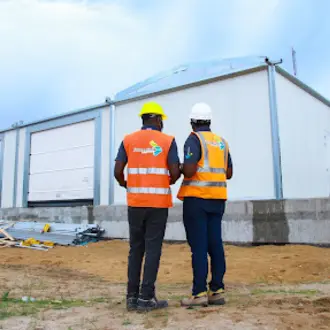Unveiling the Startup Illusion: Critical Questions Every Policymaker Must Answer
By Salma Baghdadi, Innovation Lead at Thewave_global
Originally published on Medium
In an era where talk of startups acts, innovation bills, and the emergence of new tech hubs saturates political discourse, it’s crucial to scrutinize the readiness of nations to foster a conducive environment for startups. The allure of becoming the next Silicon Valley in Africa or elsewhere may seem enticing for politicians eager to garner support, but the reality is far more complex.
Policymakers must embark on a critical self-assessment journey before delving into the arduous task of drafting and passing legislation aimed at nurturing startup ecosystems. Here are some tough questions they must grapple with:
- Vision and Objectives: What exactly does it mean for a country to aspire to build a tech ecosystem or transition to a digitized economy? Without a clear vision and defined objectives, efforts to support startups may lack direction and coherence.
- Infrastructure Readiness: Is the country’s tech infrastructure up to par? Are internet access and mobile connectivity widespread and affordable? Without adequate infrastructure, startups will struggle to thrive in an increasingly digital world.
- Economic Policy: Does the country truly encourage and support private initiatives, or are bureaucratic hurdles and government intervention hindering entrepreneurship? An open and stable regulatory environment is essential for fostering innovation and growth.
- Administrative Management and Processes: How easy is it to start a business in the country? how easy it is to raise and invest funds? Are administrative processes transparent and free from corruption? Excessive red tape and regulatory ambiguity can stifle entrepreneurial endeavors.
- Political Stability: To what extent do political movements and instability threaten long-term visions for fostering tech entrepreneurship? Political will and continuity are vital for sustaining efforts to support startups amid shifting political landscapes.
- Pipeline: Does the country produce enough skilled engineers and entrepreneurs capable of driving innovation? If not, what steps can be taken to attract foreign talent and leverage the diaspora community?
- Research & Labs: How vibrant is the country’s research ecosystem? Are research findings being translated into practical solutions and commercialized? Investment in research and innovation is crucial for fueling startup growth.
- Economic Weave (Private Sector): What is the landscape of the private sector, and how actively are big corporations engaging with startups? Collaboration between established players and startups is essential for ecosystem maturity.
- Entrepreneurship Culture: Is there a culture of entrepreneurship, or are traditional sectors dominating the economy? Cultivating a mindset conducive to innovation is essential for nurturing a vibrant startup ecosystem.
Answering these questions requires more than a simple yes or no; it demands a comprehensive assessment and a commitment to addressing gaps and challenges. While every country may aspire to become a digital hub, the reality is that many emerging markets lack the political vision and economic infrastructure necessary to support such ambitions.
Building a startup nation requires more than just rhetoric and promises; it demands tangible action and investment in the right assets: technical infrastructure, political stability, administrative efficiency, and talent development. Only then can countries truly harness the potential of their digital-native population and emerge as global leaders in innovation and entrepreneurship.
In conclusion, the journey towards building a startup nation is fraught with challenges and complexities that cannot be solved through legislative measures alone. Passing laws without concurrently investing in infrastructure and addressing systemic issues may lead to disillusionment among entrepreneurs and the public alike. Furthermore, such actions could undermine future initiatives aimed at fostering an entrepreneurial ecosy
Related Posts



